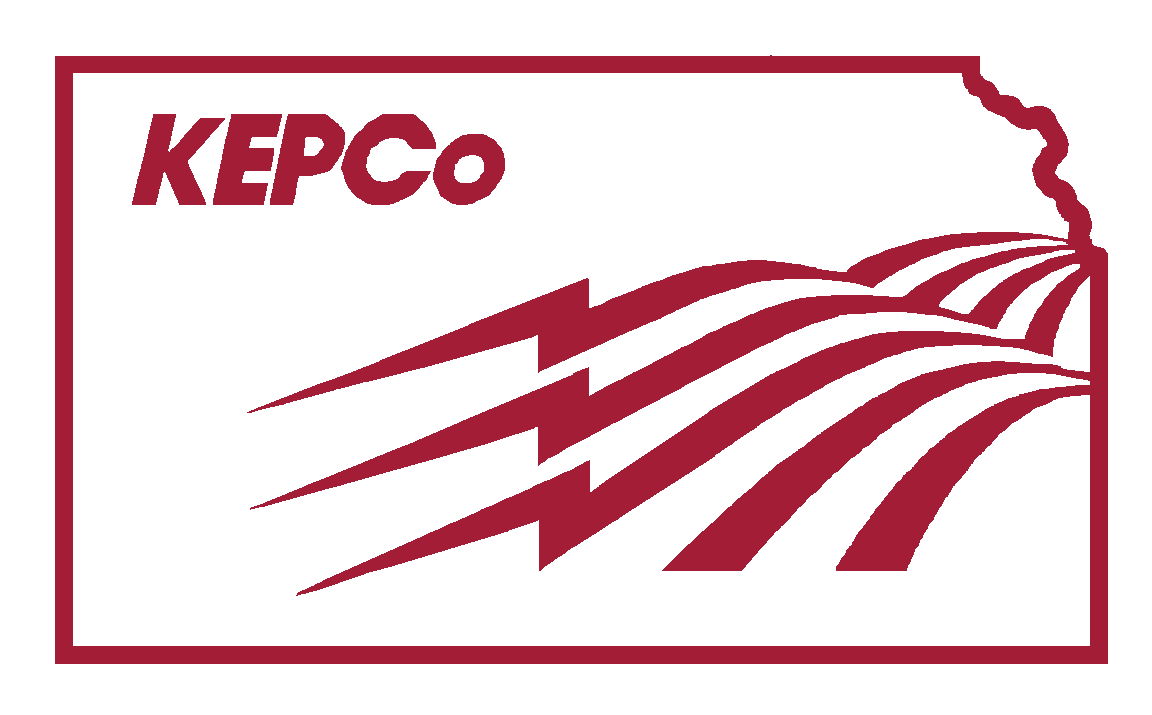A Moment with the CEO
BY SUZANNE LANE

It’s always been amazing—and often disheartening—how quickly time flies. It’s equally amazing how much can change in the electric utility industry in just one short year. This time last year, my Newsmaker article focused on the challenges related to high natural gas and energy prices and all that your G&T was doing to help mitigate the price impacts to our members—and ultimately, our members’ members. While those efforts and focuses are unwavering, so far this summer, the extreme pricing we experienced just one short year ago hasn’t been seen.
This time last year, spot market pricing for natural gas was around $8.00/MMBtu or higher, which was more than double the price of natural gas in June 2021. For most of June and now into July 2023, the Henry Hub spot market gas has been around the $2.00 to $2.50/MMBtu price, even dropping to $1.74/MMBtu at one point.
While this decrease in gas prices—and the correlated decrease in electric energy prices—has been a welcome relief from this time last year, any of us who have been in the electric utility business a long time know we can’t lose our focus and assume volatility is a thing of the past. Energy pricing is still directly impacted by several influences that are always on our radar, such as weather, natural gas storage and exports, coal delivery challenges, unplanned generation outages, and transmission congestion issues.
Something in our industry that is not volatile is this G&T’s continuous effort and focus to keep our members’ average rates stable. We do all we can each and every day to mitigate the impacts of the influences mentioned above, and we are honored to have the privilege and opportunity to do so.
KEPCo Attends NRECA Legislative Conference
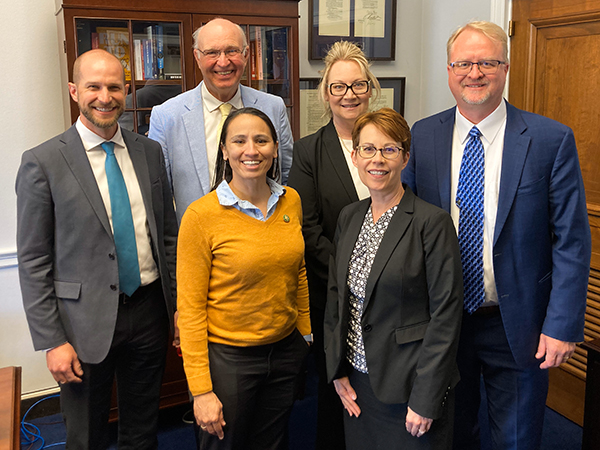
2023 NRECA Legislative Conference Mark Scheibe (Heartland), Jim Christopher (DSO), Rep. Sharice Davids, Susan Cunningham (KEPCo), Leslie Kaufman (KEC), Dennis Svanes (4 Rivers)
The annual National Rural Electric Cooperative Association (NRECA) Legislative Conference was held April 16-18. Susan Cunningham and Phil Wages represented KEPCo at the conference.
The specific issues discussed with the Kansas delegation included farm bill opportunities for electric cooperatives, which includes preserving RUS financing, expanding rural broadband access, and maintaining USDA development programs; the importance of modernizing infrastructure permitting; preserving reliable and affordable electricity; and supply chain challenges impacting electric cooperatives.
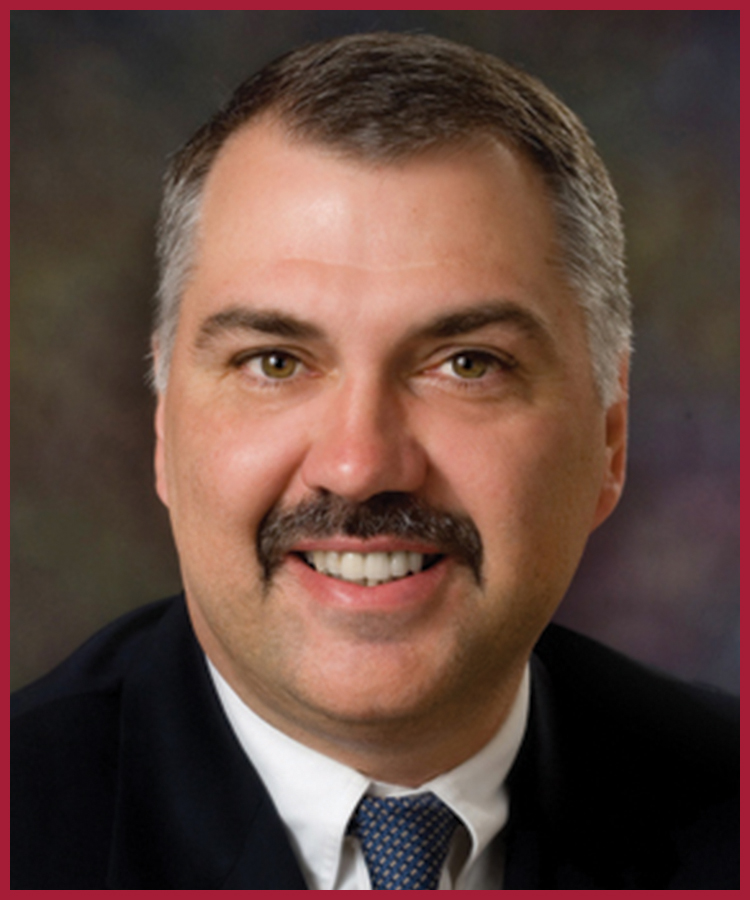
Doug Jackson retired from Rolling Hills Electric Cooperative, Inc. (Rolling Hills) on June 30. Doug had over 40 years of electric utility experience and served as general manager at Rolling Hills and its predecessor NCK Electric Cooperative, Inc. (NCK) since 1992.
His career began in 1981 with the City of Belleville municipal utility. In 1987, he joined the staff of NCK, also located in Belleville, and became the manager in 1992. NCK merged with Jewell-Mitchell Electric Cooperative, Inc. and Smoky Hill Electric Cooperative, Inc. in 2002, resulting in the formation of Rolling Hills, which Doug managed after the merger. Doug also served as KEPCo’s Secretary in 2017 and 2018, Vice President in 2019, and President from 2020 to 2022.
“Doug has been integral to the successes of KEPCo, with his service and involvement spanning over three decades. It has been an asset to have an individual with such vast experience and knowledge in our boardroom and serving as a KEPCo officer for five years. On behalf of the KEPCo board and KEPCo staff, we wish Doug a wonderful retirement and sincere thanks for his years of dedicated service,” said Suzanne Lane, KEPCo’s Executive Vice President & CEO.
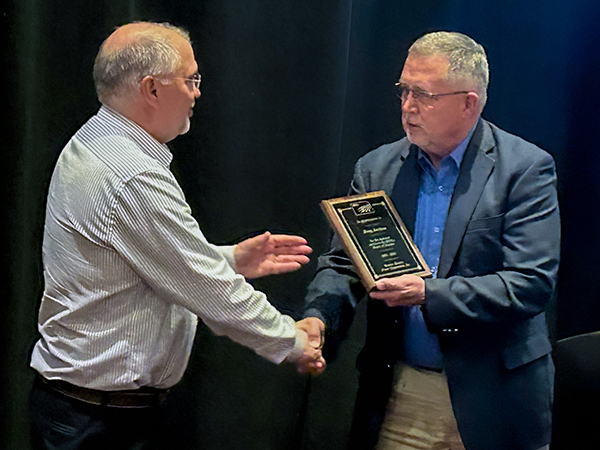
Doug Jackson (left) accepts a plaque for his years of service to the KEPCo Board from Mike Morton.
On June 1, Jason Rabe took over the reins as the CEO/general manager of Rolling Hills. Rabe was previously the City Manager for the City of Beloit. He has a combined 20 years of private and public sector management experience, including leading multiple successful organizations and providing a unique perspective on problem solving, facilitation, and efficiency.
KEPCo Selects Summer Intern

Nate Routsong, the son of Tracy and Marc Routsong, has been selected as the 2023 recipient of the Stephen E. Parr summer internship. Nate is originally from Winona, Minnesota. He and his family moved to Topeka in 2007. Nate graduated from Topeka High School and is currently a junior at Kansas State University majoring in mechanical engineering.
Nate has an older sister, Tori, and in his spare time he plays the bass drum in the KSU marching band and enjoys playing video games. Congratulations and welcome aboard, Nate!
KEPCo Submits REDLG Applications

KEPCo submitted USDA Rural Economic Development Loan & Grant (REDLG) applications for two of its member cooperatives. If both applications are selected for funding, after being reviewed and scored by USDA, approximately $20.5 million will be infused into the rural Kansas economy and more than 40 jobs will be created.
Loans of up to $2,000,000 are made to eligible entities for a maximum term of 10 years at zero percent interest. Grants of up to $300,000 are requested by intermediaries and are re-loaned at zero percent to assist with business startup and expansion, business technical assistance and job training, and community facilities projects that support economic development. Upon repayment of the initial loans made from grant funds, a revolving loan fund is established for future lending activity by the intermediary.
Applications are accepted on an ongoing basis by USDA and are evaluated for funding consideration monthly.
Generating Safety:
Stay Safe While on Vacation
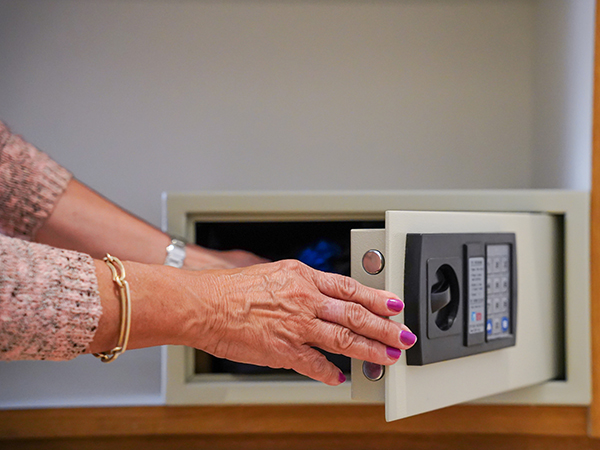
It’s that time of year when families and friends hit the road and take to the air to spend time together on a relaxing vacation. Every year, thousands of vacationers become the victims of crimes. Take a couple minutes to read about vacation safety and keep your memorable vacation from turning into a bad memory.
- When returning to your hotel late in the evening, use the main entrance of the hotel. Be observant and look around when entering parking lots and leaving your car.
- Close the door securely when you are in your room and use all the locking devices provided.
- Don’t needlessly display guest room keys in public or carelessly leave them on restaurant tables, at the swimming pool, or in places where they can easily be stolen.
- Don’t draw attention to yourself by displaying cash or expensive jewelry.
- Don’t invite strangers to your room.
- Place all valuables in the hotel safe.
- Do not leave valuables in your vehicle.
- Check to see that any sliding glass doors or windows and any connecting room doors are locked.
- Don’t let the convenience of Internet access cloud your judgment. When you use public Wi-Fi, hackers looking to steal valuable information can access your data, including your credit card or Social Security number.
Save Energy this Summer

Each of us likes to save energy and keep costs down as we try to keep our homes cool in the heat of the summer. Several of the tips below are free and can be used on a daily basis to achieve savings and, thus, lower bills. Others are simple and inexpensive actions that can be taken to keep energy affordable through the dog days of summer.
- Install window coverings to prevent heat gain through your windows during the day.
- Set your thermostat at a temperature you find comfortable and that provides humidity control, if needed. The smaller the difference between the indoor and outdoor temperatures, the lower your overall cooling bill will be.
- Keep your house warmer than normal when you are away and lower the thermostat setting when you return home and need cooling. A programmable thermostat allows you to do this automatically and without sacrificing comfort.
- Avoid setting your thermostat to a colder than normal setting when you first turn on your air conditioner. It will not cool your home any faster.
- Turn off ceiling fans when you leave the room. Remember that fans cool people, not rooms, by creating a wind chill effect.
- When you shower or take a bath, use the bathroom fan to remove heat and humidity from your home. Your laundry room might also benefit from spot ventilation. Make sure bathroom and kitchen fans are vented to the outside (not just to the attic).
- For maximum energy affordability, schedule regular maintenance for your cooling equipment.
- Avoid placing lamps or TVs near your thermostat. The thermostat senses heat from these appliances, which can cause the air conditioner to run longer than necessary.
- Vacuum your air intake vents regularly to remove any dust buildup.
- Ensure that furniture and other objects are not blocking the airflow through your registers.
- Consider lighting options that operate at cooler temperatures.
- If convenient, take advantage of daylight instead of artificial lighting, but avoid direct sunlight.
- Wash full loads of dishes and clothes for better efficiency.
- Seal cracks and openings to prevent warm air from leaking into your home by adding caulk or weatherstripping to leaking areas.
- The Consumer Product Safety Commission recommends setting your water heater at no more than 120 degrees Fahrenheit to prevent scalding. The lower setting will also conserve energy and save money.
Legislative Update
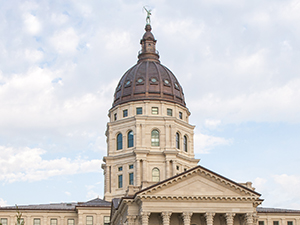
At the request of leading lawmakers, the Legislative Coordinating Council has approved the creation of the Special Committee on Energy and Utilities. The committee, in the coming months, will dedicate four days to studying energy issues, including the siting of new transmission lines, the impact of renewable energy, electric rates, and the development of a new state energy plan.
